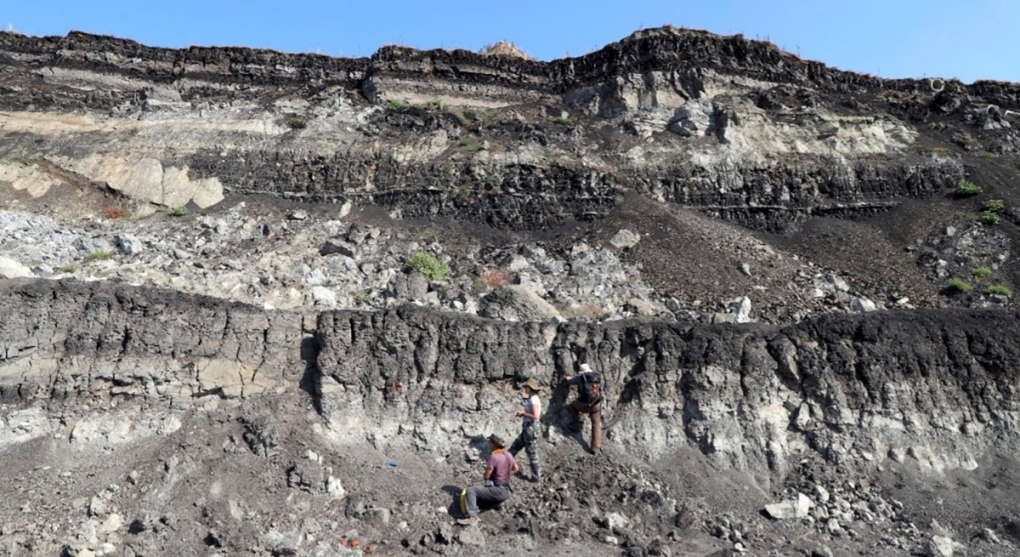ATHENS -
Deep in an open coal mine in southern Greece, researchers have discovered the antiquities-rich country's oldest archeological site, which dates to 700,000 years ago and is associated with modern humans' hominin ancestors.
The find announced Thursday would drag the dawn of Greek archeology back by as much as a quarter of a million years, although older hominin sites have been discovered elsewhere in Europe. The oldest, in Spain, dates to more than a million years ago.
The Greek site was one of five investigated in the Megalopolis area during a five-year project involving an international team of experts, a Culture Ministry statement said.
It was found to contain rough stone tools from the Lower Palaeolithic period -- about 3.3 million to 300,000 years ago -- and the remains of an extinct species of giant deer, elephants, hippopotamus, rhinoceros and a macaque monkey.
The project was directed by Panagiotis Karkanas of the American School of Classical Studies at Athens, Eleni Panagopoulou from the Greek Culture Ministry and Katerina Harvati, a professor of paleoanthropology at the University of Tubingen in Germany.
The artifacts are "simple tools, like sharp stone flakes, belonging to the Lower Paleolithic stone tool industry," the co-directors said in comments e-mailed to The Associated Press.
They said it's possible the items were produced by Homo antecessor, the hominin species dating from that period in other parts of Europe. Homo antecessor is believed to have been the last common ancestor of modern humans and their extinct Neanderthal cousins, who diverged about 800,000 years ago.
"However, we will not be able to be sure until hominin fossil remains are recovered," the project directorss said. "(The site) is the oldest currently known hominin presence in Greece, and it pushes back the known archeological record in the country by up to 250,000 years."
The tools, which were likely used for butchering animals and processing wood or other plant matter, were made about 700,000 years ago, though the researchers said they were awaiting further analyses to refine the dating.
"We are very excited to be able to report this finding, which demonstrates the great importance of our region for understanding hominin migrations to Europe and for human evolution in general," the three co-directors said.
Another of the sites investigated in the Megalopolis area of the southern Peloponnese peninsula -- home of the enormously later sites of Mycenae, Olympia and Pylos -- contained the oldest Middle Palaeolithic remains found in Greece, dating to roughly 280,000 years ago.
"(It's) one of the oldest sites in Europe that have tools characteristic of the so called Middle Palaeolithic tool industry, suggesting that Greece may have played a significant role in (stone) industry developments in Europe," the researchers said.
The Megalopolis plain has for decades been mined for coal to supply a local power plant. It has long been known as a source of fossils, and in ancient times huge prehistoric bones dug up there were linked with the Greek myths of a long-vanished race of giants that fought the gods of Olympus. Some ancient writers cited Megalopolis as the site of a major battle in that supernatural war.









































